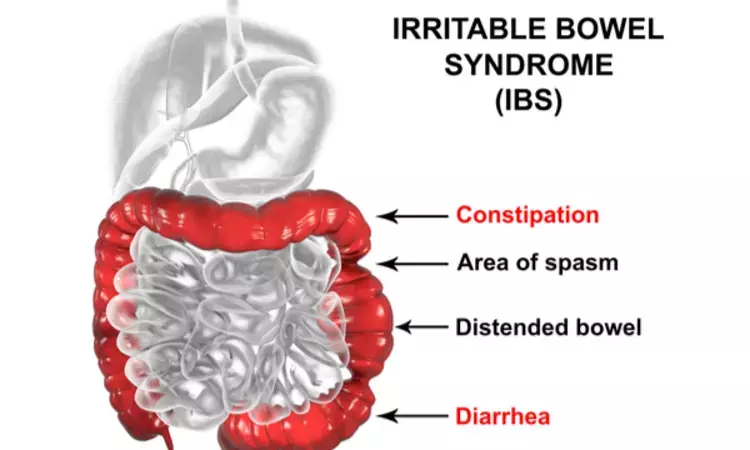- Home
- Medical news & Guidelines
- Anesthesiology
- Cardiology and CTVS
- Critical Care
- Dentistry
- Dermatology
- Diabetes and Endocrinology
- ENT
- Gastroenterology
- Medicine
- Nephrology
- Neurology
- Obstretics-Gynaecology
- Oncology
- Ophthalmology
- Orthopaedics
- Pediatrics-Neonatology
- Psychiatry
- Pulmonology
- Radiology
- Surgery
- Urology
- Laboratory Medicine
- Diet
- Nursing
- Paramedical
- Physiotherapy
- Health news
- Fact Check
- Bone Health Fact Check
- Brain Health Fact Check
- Cancer Related Fact Check
- Child Care Fact Check
- Dental and oral health fact check
- Diabetes and metabolic health fact check
- Diet and Nutrition Fact Check
- Eye and ENT Care Fact Check
- Fitness fact check
- Gut health fact check
- Heart health fact check
- Kidney health fact check
- Medical education fact check
- Men's health fact check
- Respiratory fact check
- Skin and hair care fact check
- Vaccine and Immunization fact check
- Women's health fact check
- AYUSH
- State News
- Andaman and Nicobar Islands
- Andhra Pradesh
- Arunachal Pradesh
- Assam
- Bihar
- Chandigarh
- Chattisgarh
- Dadra and Nagar Haveli
- Daman and Diu
- Delhi
- Goa
- Gujarat
- Haryana
- Himachal Pradesh
- Jammu & Kashmir
- Jharkhand
- Karnataka
- Kerala
- Ladakh
- Lakshadweep
- Madhya Pradesh
- Maharashtra
- Manipur
- Meghalaya
- Mizoram
- Nagaland
- Odisha
- Puducherry
- Punjab
- Rajasthan
- Sikkim
- Tamil Nadu
- Telangana
- Tripura
- Uttar Pradesh
- Uttrakhand
- West Bengal
- Medical Education
- Industry
Digital Hypnotherapy Program Shows Superior Efficacy in Treating IBS Symptoms, reveals study

Researchers havereported that digitally delivered gut-directed hypnotherapy program considerations in patients with irritable bowel syndrome resulted in a more significant improvement in gastrointestinal symptoms and quality of life compared with an active control. A recent study was published in The American Journal of Gastroenterology by Anderson E. and colleagues. This new avenue is equally effective and much more accessible compared to the classical face-to-face behavioral treatments for IBS management.
Irritable bowel syndrome is a chronic gastrointestinal disorder whose quality of life has been grossly incapacitated for millions from all over the world. Gut-directed hypnotherapy has already been assessed for effectiveness as a treatment for IBS, although its availability is restricted due to the requirement for special therapists and face-to-face consultations. The aim of this study was to assess the effectiveness of the digitally delivered GDH program with an active control, which may show a more available treatment for patients suffering from IBS.
In this randomized controlled trial, 240 adults with IBS were randomly assigned to one of two treatment arms, wherein one arm received a 42-session psycho-educational digital gut-directed hypnotherapy program based on Nerva, and the other arm received the active control program without GDH. Gastrointestinal symptoms, as measured with the IBS Symptom Severity Scale, quality of life with the IBS Quality of Life, and psychological symptoms with DASS-21, were assessed both at baseline and at regular intervals during and six months after the intervention.
The key findings of the study were:
Participant Demographics:
• GDH Program: 121 participants, median age 38 (range 20-65) years, 90% female, baseline IBS-SSS 321 (IQR 273-367).
• Active Control: 119 participants, median age 36 (range 21-65), 91% female, baseline IBS-SSS 303 (255-360).
Primary Endpoint:
• 81% of participants in the GDH Program achieved a ≥50-point decrease in IBS-SSS compared to 63% in the Active Control (p=0.002).
Gastrointestinal Symptoms:
• Median IBS-SSS at program completion: GDH 208 (IQR 154-265) vs. Control 244 (190-308) (p=0.004).
• 71% of GDH participants reported a 30% reduction in pain, compared to 35% in the Control group (p<0.001).
Quality of Life:
• Improvement in IBS-QOL: GDH Program increased by 14 points (IQR 6-25) vs. Control 7 points (IQR 1-15) (p<0.001).
Psychological Symptoms:
• Both groups showed similar improvements in psychological status.
This randomized clinical trial demonstrated that a digitally-delivered GDH program was significantly more effective at improving gastrointestinal symptoms and quality of life for patients with IBS, as compared to an active control. These superior results, according to the GDH program, explain how it can become an equable and available option against face-to-face behavioral therapies.
A digitally delivered GDH program is a more accessible treatment for patients with IBS, delivering an equally effective therapy that provides better improvement in gastrointestinal symptoms and quality of life as compared to an active control. Such a novel approach may be a game-changer in IBS management, further opening accessible effective therapy for patients.
Reference:
Anderson, E. J., Peters, S. L., Gibson, P. R., & Halmos, E. P. (2024). Comparison of digitally-delivered gut-directed hypnotherapy program to an active control for irritable bowel syndrome. The American Journal of Gastroenterology, 10.14309/ajg.0000000000002921. https://doi.org/10.14309/ajg.0000000000002921
Dr Riya Dave has completed dentistry from Gujarat University in 2022. She is a dentist and accomplished medical and scientific writer known for her commitment to bridging the gap between clinical expertise and accessible healthcare information. She has been actively involved in writing blogs related to health and wellness.
Dr Kamal Kant Kohli-MBBS, DTCD- a chest specialist with more than 30 years of practice and a flair for writing clinical articles, Dr Kamal Kant Kohli joined Medical Dialogues as a Chief Editor of Medical News. Besides writing articles, as an editor, he proofreads and verifies all the medical content published on Medical Dialogues including those coming from journals, studies,medical conferences,guidelines etc. Email: drkohli@medicaldialogues.in. Contact no. 011-43720751


